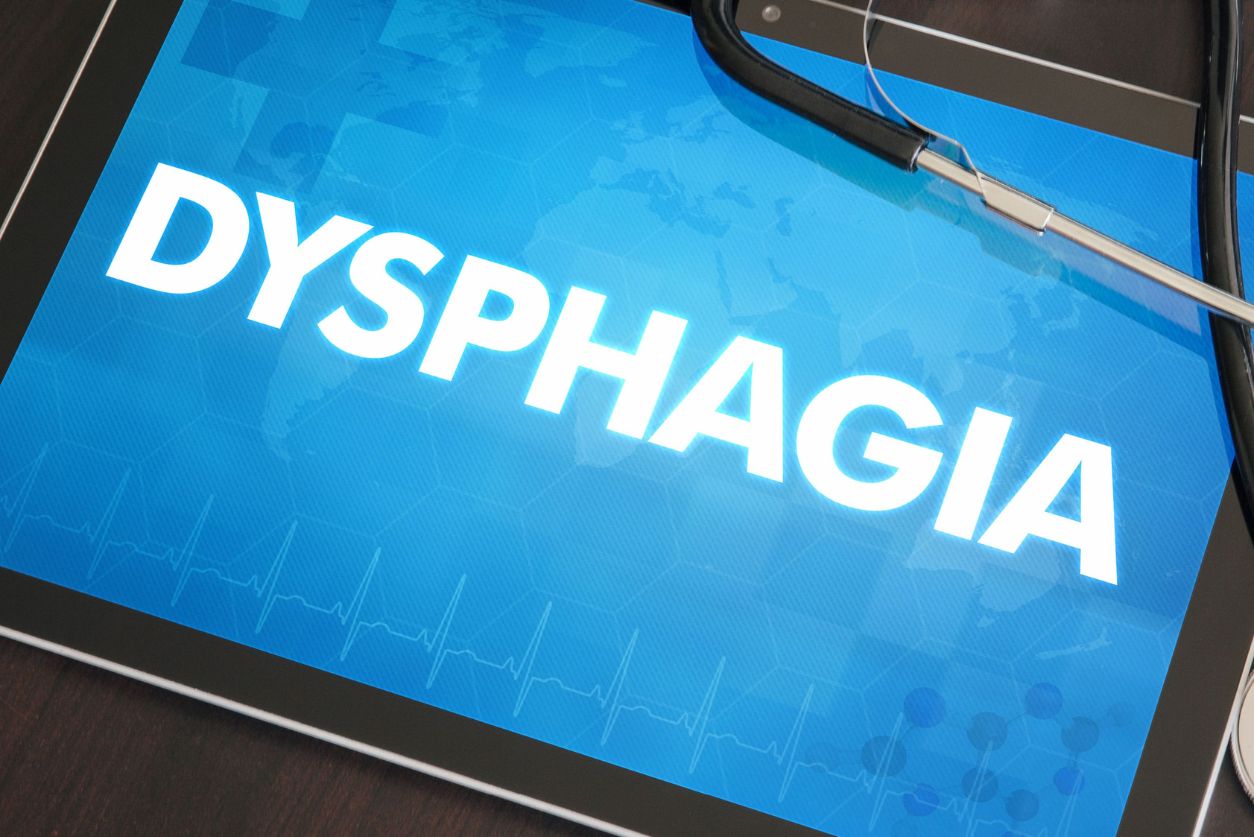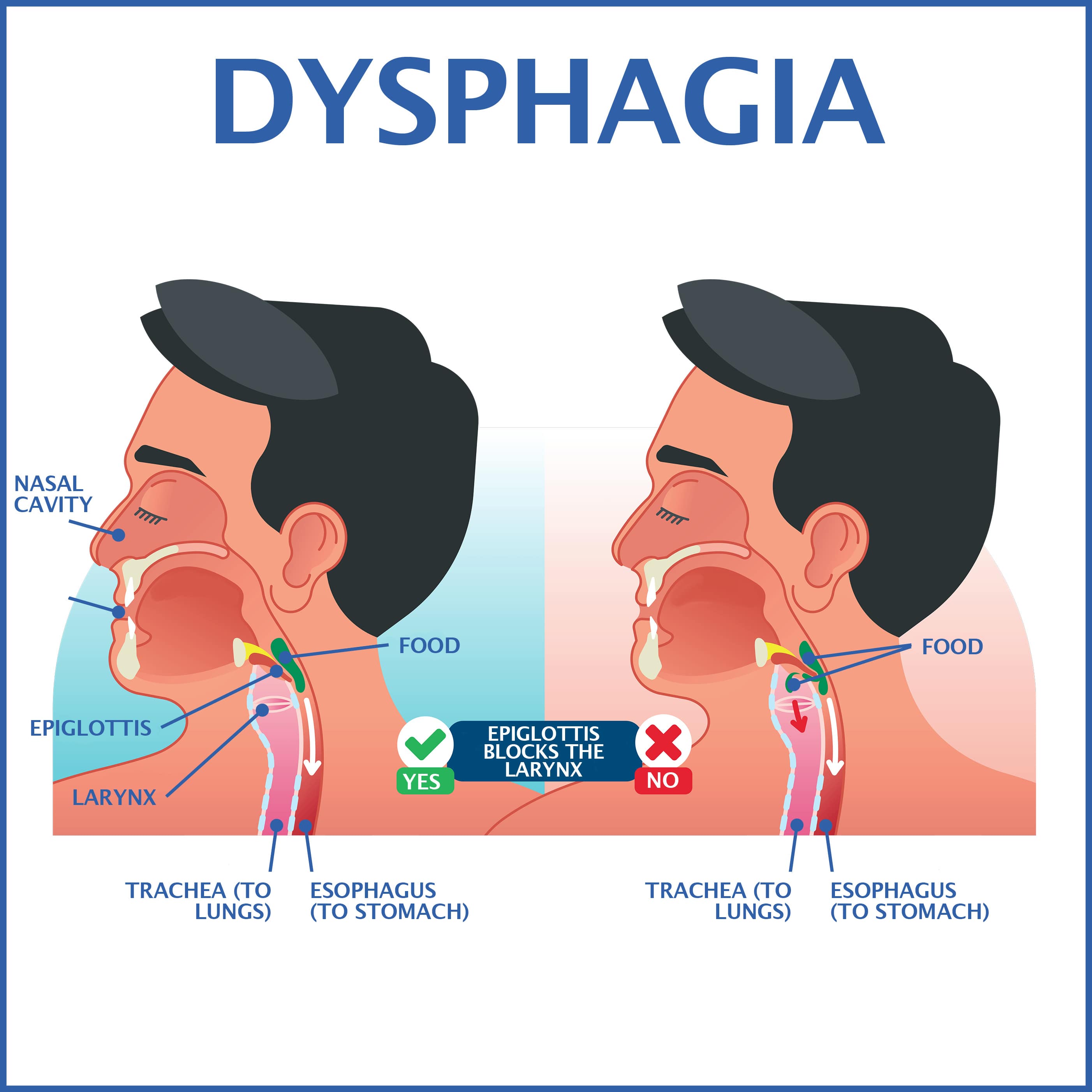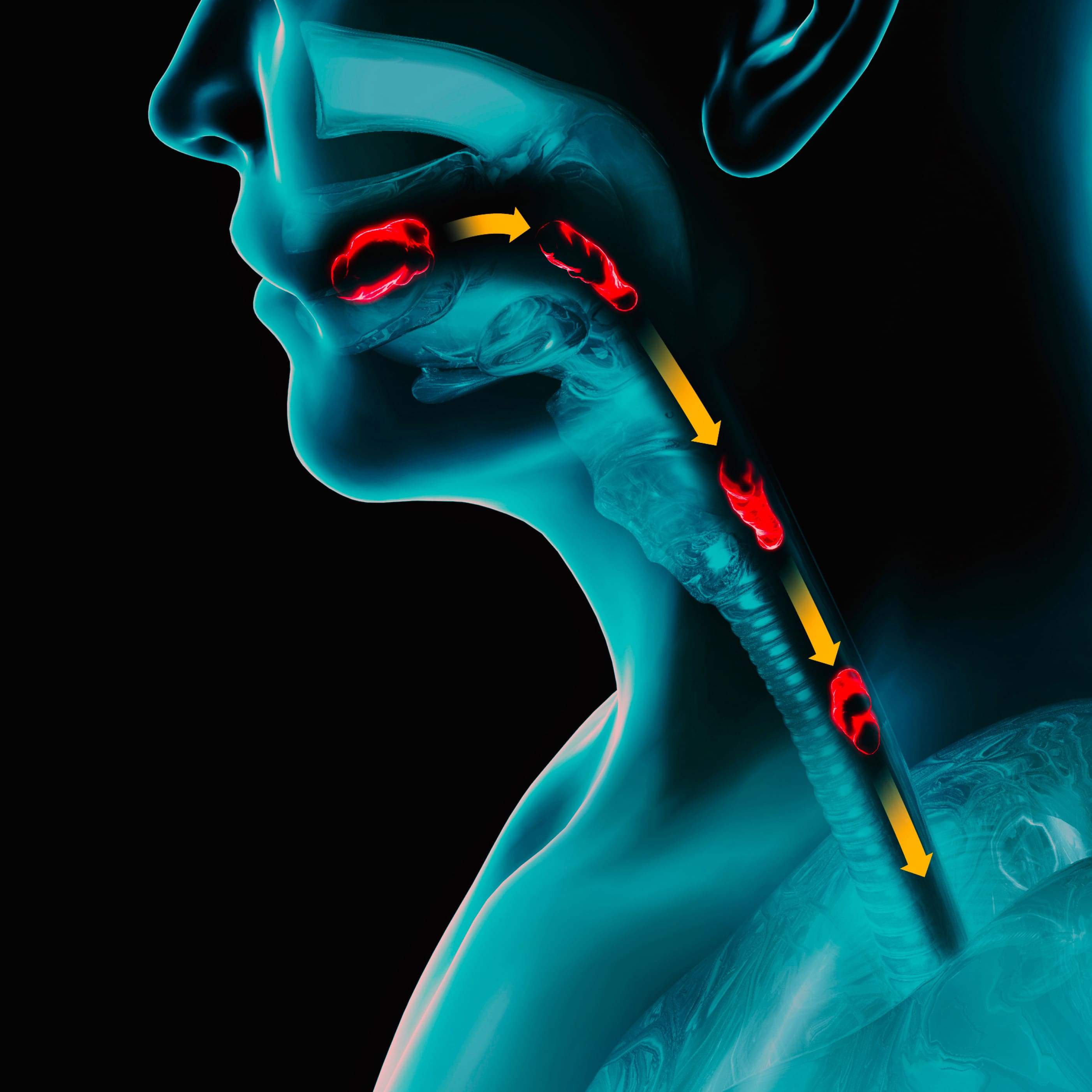
Why Can’t I Swallow?
By: Kruti Patel and Vishal Gupta, M.D.
Are you having trouble swallowing? Do you feel as if food or liquids get caught in your throat? Do you often choke when eating? You’re not alone. People of all ages can have dysphagia or difficulty swallowing, but it is especially common in those over 50. While occasional dysphagia when chewing too fast or not chewing enough may not be of great concern, persistent dysphagia may need treatment.
SYMPTOMS
Symptoms and signs of dysphagia can include:
- Being unable to swallow foods or liquids.
- Pain while swallowing.
- A sensation of food getting stuck in your throat or chest.
- Hoarseness.
- Regurgitation of food.
- Frequent heartburn/acid reflux.
- Coughing/gagging while swallowing.
- Having to take smaller bites.
- Losing weight unexpectedly.

CAUSES OF DYSPHAGIA
Swallowing is a complex act involving many neurological and muscular processes. There are two types of dysphagia including:
- Esophageal Dysphagia: Typically related to a physical problem or blockage in the esophagus
- Oropharyngeal Dysphagia: Typically related to a neurological problem in the throat/mouth
There are several conditions and problems that can cause dysphagia, including:
- Achalasia: Occurs when the esophageal sphincter does not relax properly to allow food to enter the stomach.
- Esophageal Spasms: Multiple, poorly coordinated contractions that occur in the esophagus.
- Strictures: A narrowing in the esophagus that causes food or liquids to get caught in the throat.
- Tumors/Cancer: Cancer or tumorous growths can block the throat or esophagus, preventing food or liquids from passing through.
- Neurological Disorders: Some neurological disorders can cause dysphagia, including Parkinson’s disease or muscular dystrophy.
- Esophageal Ring: An esophageal ring is a thin area of narrowing that can cause difficulty swallowing.
- GERD/Heartburn: Long-term acid damage in the esophagus can lead to scarring or spasms, which can lead to narrowing.
- Zenker’s Diverticulum: This occurs when a small pouch forms at the junction of the upper esophagus and lower part of the throat.
- Zenker’s Diverticulum often causes difficulty swallowing, throat clearing, and coughing.
- Radiation Therapy: Radiation can lead to scarring and inflammation of the esophagus, sometimes causing difficulty swallowing.
- Foreign Bodies: On occasion, pieces of food or other objects can obstruct the throat or esophagus.
- Scleroderma: This occurs when scar-like tissue develops and hardens in the esophagus, leading to a weakening in the lower esophageal sphincter.
When experiencing significant dysphagia, it is important to inform your primary care provider and visit a gastroenterologist as soon as possible. Depending on your diagnosis, your physician will recommend the best treatment for you.
WHAT IS A GASTROENTEROLOGIST?
Gastroenterologists specialize in the management and treatment of diseases involving the gastrointestinal tract, liver, pancreas, gallbladder, and bile ducts. The GI tract is expansive and includes the esophagus, stomach, small intestine, large intestine (also known as the colon), and rectum. Gastroenterologists often perform endoscopy procedures to diagnoses and treat GI disorders. These include colonoscopy, esophagogastroduodenoscopy (EGD), endoscopic ultrasound, endoscopic mucosal resection (EMR), and flexible sigmoidoscopy procedures. Endoscopic procedures typically involve inserting a small, flexible scope with a camera on the end into the mouth or anus.

DIAGNOSES
Several tests can be performed to determine the cause of your dysphagia, including:
- Barium Swallow: An X-ray for which you will drink a barium solution that will coat your esophagus, allowing it to better appear on imaging.
- Upper Endoscopy: An endoscopic procedure during which a flexible, thin scope is passed down your throat to visualize the esophagus and stomach.
- Esophageal Manometry: Procedure during which a small tube that is connected to a pressure recorder is inserted into the esophagus to measure muscle contractions as you swallow.
- FEES (Fiber-optic endoscopic evaluation of swallowing): An endoscope with a special camera is inserted into your throat as you try to swallow.
TREATMENT OPTIONS
Depending on the etiology of your dysphagia, there are several treatment options available:
- Esophageal Dilation: If a stricture or narrowing is present, your physician may perform esophageal dilation. During this procedure, an endoscope with a special balloon attached is used to stretch the esophagus gently.
- Surgery: If a tumor/cancer, Zenker’s Diverticulum, or achalasia are present, your physician may recommend surgery to clear the esophageal path.
- Learning exercises or swallowing techniques: Certain swallowing exercises or techniques can help improve swallow function.
- Medications: If chronic GERD is the cause of your dysphagia, your provider may prescribe oral medication to help reduce stomach acid.
- Feeding Tube: A feeding tube may be required in severe cases of dysphagia.
- Stent Placement: Your doctor may insert a metal or plastic stent to help open a blockage or narrowing in the esophagus. These can be temporary or permanent in severe cases.
Contacting Us
If you are having difficulty swallowing, we urge you to contact the experienced, trained, and caring team of physicians at Gastroenterology of Greater Orlando. Our practice began more than 15 years ago and has emerged as one of the leading gastroenterology practices in Central Florida. We perform a host of diagnostic procedures using state-of-the-art equipment in a friendly, comfortable, and inviting atmosphere where patient care is always a top priority. Contact us today at (386) 668-2221!